
David Hill
Who wants to still get involved in a debate about refugees in Hungary? The international project Journeys and the Trafo House do. Instead of usual topics like “are all migrants terrorists” or “were they sent here by George Soros or another rich Jew”, the play Víz/választó raises the question, what will happen if Hungarians have to leave their homeland and how can it be possible at all. An interview with David Hill, coordinator of the Journeys.
You are the coordinator of Journeys. You brought artworks and a theatre play to Budapest in May 2017.

Journeys was orginally intended to be a festival in the UK. We organized it to give space to high-quality artists who have to live as refugees right now. We also gave them the chance to reflect on their current situation with their artworks and depict the refugee destiny, refugee status with artistic methods. From the original festival, three projects emerged: Look Up exhibits open-air artworks, The Container Theatre Project releases debate theatre plays and Journey Seminar brings artists and audience closer to each other. After a while we were about to search foreigner partners, this is how our connection to Trafo started and the play Víz/választó was created.
How did it emerge from an English idea to a Hungarian play?

We don´t have one single play that is shown in every country the same way. The Budapest performance is, for instance, a result of cooperation between actors and actresses of Trafo and us, and it was especially dedicated to Hungarian audience. It´s very important for us to pay attention on the local situation and to find the perfect way to bring the audience really close to our main topic. In Rome, for example, a group of Italian and refugee actors played together in a children´s museum. In England, theatre companies like the Royal Exchange Theatre worked with refugee actors and actresses. So all plays are original and it can be that our Manchester play wouldn´t say as much to the Hungarian audience as the Víz/választó, designed and performed by Hungarian artists. It´s generally important that refugees themselves, wherever possible, take part in the work, too…
This part is a bit hard in Hungary. Due to the goverment propaganda, a lot of people already fear or hate refugees while they haven´t even met one personally.

So the Hungarian play turns this topic upside down. We don´t speak about people who arrived to Hungary the recent time, but see in the future. It can be that in 2086, Hungarians themselves have to leave their native country and search for a new home because of climate change and other natural catastrophies. How could this happen, how will Hungarian migrants feel, what could possibly happen to them? Everyone has their opinion about refugees coming to their country, but how many of us asked what would happen if we were in the same situation?
How does the work usually go and how are the plays recepted?

It would be overestimated to say that all visitors are tolerant and loving with a refugee-centered play on the Western side of Hungary. Actors can normally work together, but the rejecting or even aggressive attitude of the audience can make their performance harder. This is why we started the program Coffeeshop Conversations, which is separate from the theatre plays, although they can be linked together. People can drink coffee and eat cookies, talk to the artists, speak all their fears out loud, get answers to their question. On the wall there are paintings, photos, drawings made by refugees. This is a quite successful program.
Will the Hungarian audience also get the chance to speak out their thoughts after forced to leave their comfort zone?

Naturally. Debate theatre also contains a discussion after the play where everyone can speak about their feelings. We don´t want to say the audience what to think, but to inspire them to individual thinking and having an own opinion. That´s why I´m glad that school groups and classes are going to watch Víz/választó, too. Of course, it´s a great responsibility for teachers and for the artists of Trafo to help them interpret what they´ve just seen. It must be a very good experience anyway, to see what theatre is capable of.
Why are Hungarian migrants fleeing from the climate change?

It´s an eternal debate these days who are the “real” refugees. Only those who flee from the war, or also those who live in extreme poverty? In our opinion, everyone is an asylum seeker who is forced to leave home, and it doesn´t matter if they were shot at home or starved to death. This topic is surely recent and a real threat to our future. But we could have chosen a setting in the past, too, to show the inevitable consequences of migration on culture. In Great Britain, for instance, many people believe fish-and-chips to be some typical British food. In reality, it comes from America and it was originally a Jewish dish. Lot of things are considered as the pillars of national culture, but they are actually the results of migration. The media portrays the refugee question as some dangerous and horrible process, but historical experience shows that mixing up things and wandering always brought up something new and good. Why should be this nowadays any different?
So let´s close this interview with a refugee success story! Do you know someone who had to start their whole life over, and now he or she is successful in the new country?

Jamal Jameel is a quite good example. He is a photograph who fled from Iraq and came to Manchester. For the first time I met him at a workshop of the already mentioned Royal Exchange Theatre, where he went to introduce himself. I didn´t hear him for a while afterwards. Then, last May, we were looking for artists at the Journeys Festival, and he applied for our call. His artworks were fantastic, it was no question that we want to work with him, and many of us even remembered him from the previous workshop. He took a series of portraits, among others about other refugees in Manchester. One of his portraits will be seen on the side of a tram in Budapest, as part of our Look Up project, with two other works by Nikos Papadopoulos. Jamal became really famous, he was on TV and on videos several times, and he helped his fellow refugees with his artworks to be seen and discussed as well.

(c) Jamal Jameel

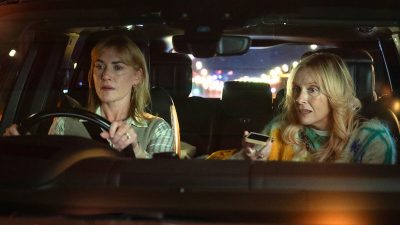
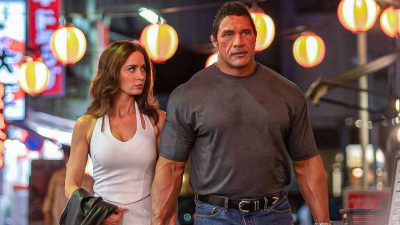
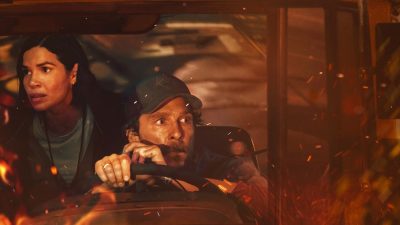


















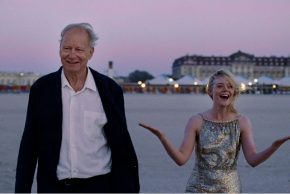
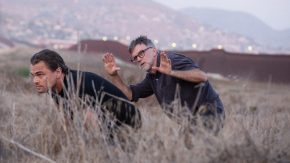
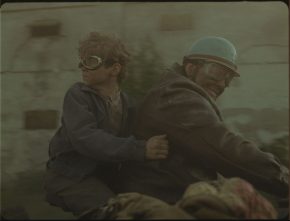
Comments